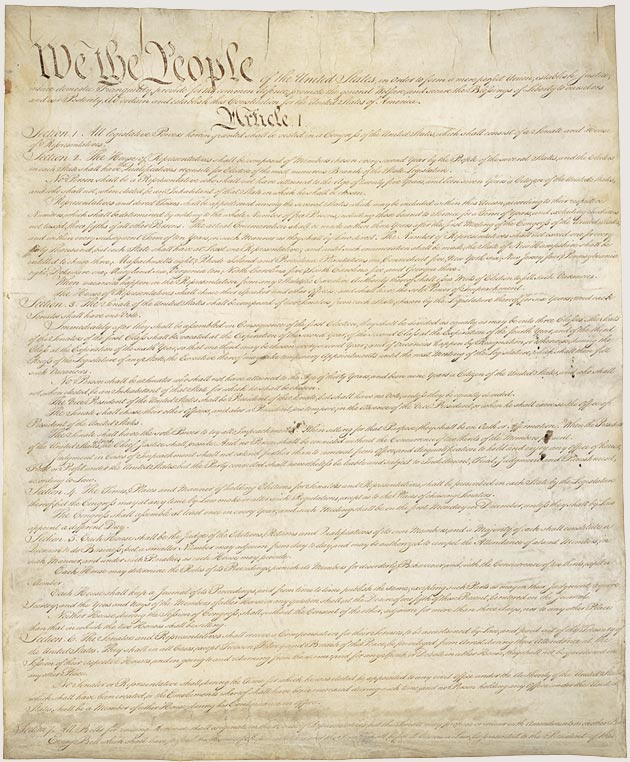Constitution Day 2023
By Thomas C. Giangreco, Gov Docs, Microforms & Digitization Projects, Walsh Library
How well do you know the Constitution?
It’s Constitution Day again, the day we celebrate the approval of the United States Constitution by the delegates to the constitutional convention in 1787. If July 4, 1776 stands as the nation’s birthday, then September 17, 1787 can rightfully be called the birthday of the United States government. While we all know the basics that we learned in school, how well do we know the details of this historic document? To mark this Constitution Day, let’s try a little quiz. Answers are provided below – no cheating!
- How many articles make up the Constitution?
- Who presided over the constitutional convention?
- The first ten amendments to the Constitution are collectively known as what?
- Which amendment outlawed slavery?
- Which article establishes the office and powers of the president?
- What was the first state to ratify the Constitution?
- How is treason defined by the Constitution?
- How many justices does the Constitution place on the Supreme Court?
- Which amendment gave women the right to vote?
- Article one requires all spending bills to originate in what chamber of the congress?

Answers…
- Seven articles in total, establishing the three branches of government and addressing other issues relating to the establishment of the federal union of the states.
- None other than George Washington, a precursor to his becoming the first president.
- The BILL OF RIGHTS. Originally 12 amendments proposed by James Madison, only 10 of which were ratified. The eleventh was ratified as the twenty-seventh amendment in 1992!
- Thirteenth amendment, December 6, 1865. “Neither slavery no involuntary servitude except as a punishment for crime whereof the party shall have been duly convicted, shall exist within the United States, or any place subject to their jurisdiction.”
- Article II establishes the executive branch and specifies the manner in which the president is elected as well as enumerating the powers and responsibilities of the office.
- Delaware, on December 7, 1787, giving Delaware the distinction of being the first state in the union.
- Article III, section 3 gives a specific definition of treason. “Treason against the United States shall consist only in levying war against them, or in adhering to their enemies, giving them aid and comfort.”
- Trick question! While article III established the federal court system, including the Supreme Court, it never specifies the number of justices for the Supreme Court.
- Nineteenth amendment, August 18, 1920. “The right of citizens of the United States to vote shall not be denied or abridged by the United States or by any state on account of sex.”
- Article I, section 7 requires that all bills for raising revenue originate in the House of Representatives, for while the Senate represents the states, the House represents the people.
How did everyone do? If you would like to brush up on your knowledge of the Constitution, stop by the reference area in the week leading up to Constitution Day and pick up a free pocket edition of the Constitution as well as other giveaways. Just look for “Little Ben” (see below) at the reference desk. And remember, the day is not just about the foundation of the United States government, but about “WE THE PEOPLE”.
To learn more about the Constitution, try doing catalog searches with subject terms like Constitutional History United States or United States. Constitution.



